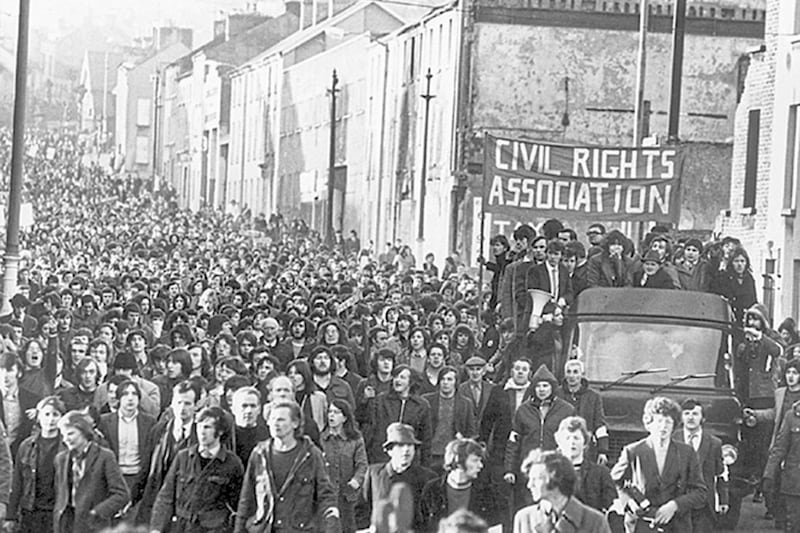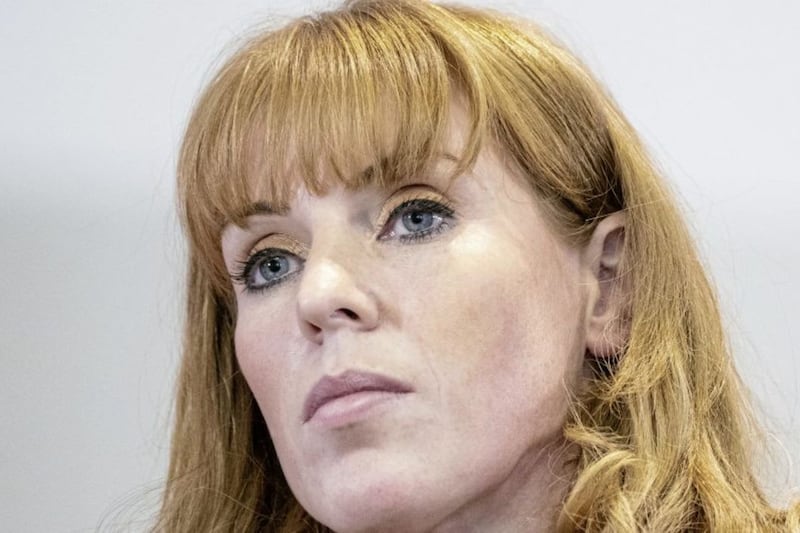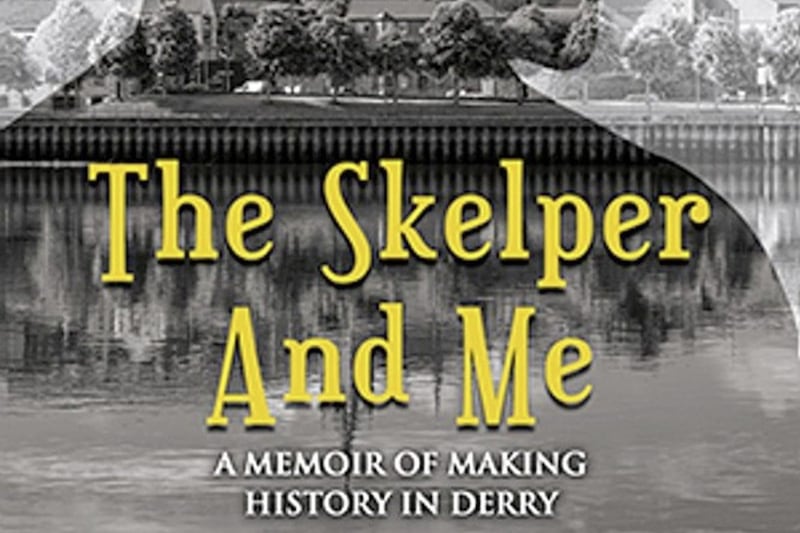TONY Doherty tells the story of his Bogside childhood through the eyes of a 12-year-old boy because it was only from that age that he used "bad language."
This Man’s Wee Boy is a searingly honest account of growing up in Derry’s Bogside in the 1960s through the early days of the Troubles to the death of his father, Paddy.
The author (53) takes the title of his book from a snatched memory as he stood at the open grave of his father days after he was shot dead on Bloody Sunday.
Tony’s father, Paddy was one of 13 men and boys killed on Bloody Sunday. A 14th man, John Johnston died later from the wounds he received.
Paddy Doherty’s death was a particularly public one, even by the standards of Bloody Sunday.
In a series of photographs taken by acclaimed photographer, Gilles Peress, the 31-year-old Derry man is seen crawling towards safety close to the city’s Rossville flats, his face covered with a white handkerchief.
The photographs clearly show his efforts to reach safety under the hail of British military gunfire before the final pictures show the Derry man seconds after he is shot dead. The final pictures in the sequence show another Derry man – the late Paddy Walsh – crawl from cover in a heart-breaking bid to give succour and pray for the dead Paddy Doherty.
At his father’s funeral, a steward tries to hold the young Tony Doherty back only to be challenged by his mother, Eileen.
The book ends with the lines: "It’s okay, mister. That’s this man’s wee boy," she said, pulling me over to her side, where her thick black coat felt cold and damp."
His father’s death obviously had a huge impact on his future life, from his time in prison for Troubles-related activity to his grounding in the community from which he came.
However, while the drama of the book’s lines set the tone for the entire story, it is about much more than that.
The book is a gritty, warm account of life in Derry’s Brandywell, Creggan and Bogside in all its colour. The writer said that to accurately reflect that life, he had to tell his story through his 12-year-old self.
"I sort of reasoned with myself that I needed to be 12 because if I wasn’t I couldn’t write the book with all the curses – because me da cursed like a trooper as well.
"It was only when I was 12 that I started cursing; I wouldn’t do it before that."
The book is a child’s eye view of life in Derry in all its innocence. The unionist gerrymander of Derry, the Apprentice Boys’ Lundy and the start of the Troubles almost slip in unnoticed before the full onslaught of the violence – including the death of his friend, Damien Harkin in 1971.
The nine-year-old died when he was crushed by a British army vehicle.
It is also a work of discovery for the writer, who found he had a Presbyterian great grandfather who was killed in the Great War.
The Derry man readily admits that the parts of the book about his father were difficult to write. He said his partner, Stephanie, wouldn’t let him write about his father’s death over Christmas as she knew the impact it would have.
"I wrote about the fullness of the memories that I have but the memories that I have are very scant if you read that final chapter [about Bloody Sunday and his father’s death].
"Some of the memories, when you think about it in your own head, it would actually take you longer to read it than it actually took to live it.
"The memories are 20 seconds here, a half minute there, and to be honest with you that’s all I can remember; I have no other memories."
However, the writing of the book helped the Derry man to get to know his father in a very different way.
"The chapter (about Bloody Sunday) was the last one I wrote. In the writing of the other stuff, I got to know my father in a different way from I had actually known him when he was alive.
"I stopped knowing my father when he was alive but when you go back to write about 'my father' as a subject for a memoir, you have no choice but to get to know the man again.
"People were telling me things and I was remembering conversations and snippets of conversations that I had with him that I had forgotten about.
"I’d start with a spark of a memory and go into the memory and go to talk to someone else and they’d help me remember better, particularly family members."
Next week’s launch of the book will be poignant for the entire Doherty family. As his late mother’s death approached in 2014, Tony talked to her more and more about his family and his childhood.
"By April 2014, I had a fair idea my mother was dying and I started to visit her a lot more and told her what I was doing and she talked to me about a whole lot of things that happened in the past, so a lot of stuff in the book has come directly from my mother as well and I’m happy about that," he said.
His mother was a great story teller. She told him of his parents' courtship and early family life. Tony found the process of research and writing about personal issues hugely helpful.
"I suppose I found it great to rediscover my youth and all the pleasure – and pain – associated with growing up was a good thing for me.
"When I was sitting at six o’clock in the morning, thinking of myself ‘up the banking’ in 1968, I remember that through the various emotions at the time so I really enjoyed doing it, apart from the last chapter."
As a result, he believes he knows himself a little better.
"I also know my childhood a bit better and I know my father a bit better than those are three bonuses," said Tony.
:: This Man’s Wee Boy is published by Mercier and will be launched by author Jimmy McGovern at Tony’s old school, Long Tower Primary School in Derry on Thursday August 25.








